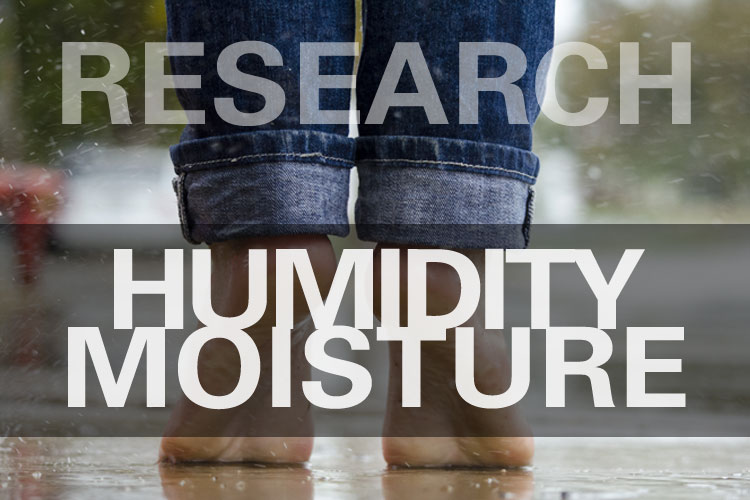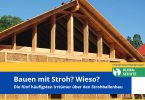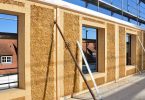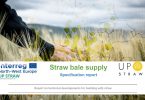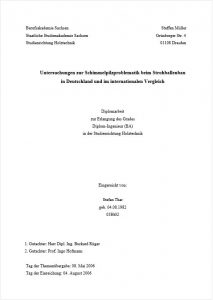
EN: One of the most important objectives of the Fachverband Strohballenbau Deutschland e.V. is, in addition to the dissemination of this type of construction, the obtaining of the general building approval for the straw bales as a building material. In this thesis, a status quo of the knowledge about the moisture and mold behavior of the straw bale construction, which exists in various areas, is to be presented. Furthermore, calculations and evaluations of practical data on the temperature and humidity behavior in straw bale constructions are provided. With the help of computer programs for the calculation of the defrosting water supply and the prediction of possible mold fungi, existing straw bale houses in practice should be examined and evaluated for their actual moisture and associated mold fungus situation. This work is intended to assist Fasba in possible discussions about the risks of building with straw bales and to provide a main argument against the claim that the straw bales should not be certified due to the alleged mold fungus risk.
DE: Eines der obersten Ziele des Fachverbandes Strohballenbau Deutschland e.V. ist neben der Verbreitung dieser Bauweise die Erlangung der allgemeinen Bauaufsichtlichen Zulassung für den Strohballen als Baustoff. In dieser Arbeit soll ein Status quo des in verschiedenen Bereichen existierenden Wissens über das Feuchte- und Schimmelverhalten beim Strohballenbau dargestellt werden. Des Weiteren wird anhand von Berechnungen und Auswertungen von Praxiswerten über das Temperatur- und Feuchteverhalten in Strohballenkonstruktionen Auskunft gegeben. Mit Hilfe von EDV-Programmen zur Berechnung des Tauwasserausfalls und zur Vorhersage eines möglichen Schimmelpilzbefalls sollen in der Praxis existierende Strohballenhäuser auf ihre tatsächliche Feuchte- und damit verbundene Schimmelpilzsituation untersucht und bewertet werden. Diese Arbeit soll dem Fasba bei möglichen Diskussionen über die Risiken des Bauens mit Strohballen unterstützen und ein Hauptargument gegen die Behauptung liefern, dass der Strohballen auf Grund der vermeintlichen Schimmelpilzgefahr nicht zertifiziert werden sollte.
Author: Stefan Thar
Appendix: READ MORE

